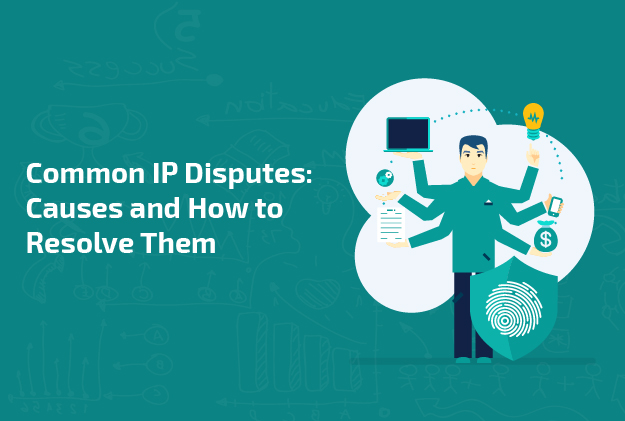
Introduction to Blockchain and Intellectual Property (IP)
The rise of digitalization has brought several opportunities alongside challenges for intellectual property. They constantly remain under threat of infringements, misuse and unauthorized use. These issues can be effectively addressed with blockchain technology.
Blockchain technology is a decentralized ledger that securely stores data in blocks linked together in a chain. It is increasingly integrating with several technological applications and influencing several domains, including intellectual property (IP). Blockchain in intellectual property allows a secure and reliable mechanism for their protection as well as management. Additionally, Blockchain and IP integration provides a secure and transparent ecosystem for intellectual property to grow.
Opportunities for Using Blockchain in IP Protection
Blockchain technology offers IP protection by providing security, transparency, and efficiency. Additionally, it can effectively and efficiently optimize IP management, tracking, and enforcement. The incorporation of blockchain and IP enables several opportunities:
Enhanced Transparency and Traceability: blockchain removes the need for intermediaries and creates immutable records of ownership and usage, increasing transparency, reducing fraud risks, and elevating IP traceability.
Improved Security and Anti-Counterfeiting: blockchain creates an immutable ledger preventing any alteration, thereby increasing IP security. It helps verify authenticity and creates distinct digital fingerprints, reducing counterfeiting and piracy.
Smart Contracts for Licensing and Royalties: IP licensing can be simplified by leveraging smart contracts, an integral part of blockchain technology. Further, they automate royalty distribution for IP and licensing processes involving review, renewal, or termination.
Decentralized IP Management Systems: Several platforms are leveraging blockchain technology for decentralized IP management, increasing accessibility and control for creators.
Efficient IP Audits and Compliance: IP audits can be facilitated using the blockchain’s immutable ledger, providing a secure and unalterable record of IP ownership.
Reduced Administrative Costs: blockchain removes the need for intermediaries and manual processes, minimizing administrative costs.
Challenges of Blockchain Adoption in IP Protection
Blockchain for IP Protection is a transformative approach to enhance overall management and security. However, there are a few challenges for blockchain adoption in IP protection. The following are given some challenges and how they can be tackled:
| Challenges | Solutions |
| Legal and Regulatory Hurdles | Establishing a clear legal framework and its implementation across the globe. |
| Technological Limitations | Utilizing scalable solutions such as layer 2, consensus mechanisms, and interoperability with cross-chain tech. |
| Adoption Barriers | Developing user-friendly interfaces, engaging with IP creators, owners, and industries to highlight the importance of blockchain adoption for IP protection, and incentivizing early adopters. |
| Data Privacy and Confidentiality Issues | Forming governance policies for data sharing and use. |
Real-World Use Case of Blockchain in IP Management
Blockchain technology offers streamlined management by elevating security and transparency. Also, it secures proof of ownership, creation, licensing agreements, and royalty payments. Various creators and businesses are increasingly relying on blockchain-based services for their IP management and protection. This has given rise to several blockchain-based platforms for proof of creation, certification, and management.
A notable platform in this category is MyIPR. It is designed to mitigate the issues of plagiarism, theft, and misuse of creative ideas. It is a user-friendly application that provides a smooth certification process. This certificate acts as primary evidence that can facilitate the IPR and can be used in case of any feuds or allegations. Blockchain technology offers a robust solution by securely collecting and timestamping evidence of IP creation, making MyIPR a secure platform for creators and businesses to commence their creative ventures in a safe environment. Besides, MyIPR has been molded with an advanced algorithm that can detect the similarities among the different ideas; it can further shrink the chances of the coincidence of double discoveries or processing similar ideas.
Final Reflections
In summary, blockchain technology is a transformative approach to IP management and security. Further enhancing transparency around IP licensing and royalty rights. Use of blockchain technology empowers creators and businesses by providing a fair ground for more creative outcomes. Additionally, blockchain in IP offers several benefits, including traceability, anti-counterfeiting, immutability, and decentralized management.
However, various creators and businesses face distinct challenges in the adoption of blockchain technology in IP which can be resolved through proper addressal of these challenges. Due to its increasing popularity, numerous creators and businesses are adopting blockchain bases services for their IP management and protection. This has given rise to multiple blockchain-powered platforms. One such platform is MyIPR. MyIPR backed by blockchain technology, presents the users with a secure ecosystem with agreeable features like accessibility, affordability, monetization opportunities, and secure environment.
FAQs
How does blockchain technology help in intellectual property protection?
Blockchain technology enhances intellectual property protection by creating an immutable, tamper-proof, decentralized ledger to record IP ownership. It facilitates secure and transparent IP transactions, reducing the risk of counterfeiting, infringements, and unauthorized use.
What are the key challenges of implementing blockchain for IP protection?
The key challenges of implementing blockchain for IP protection are legal and regulatory hurdles, technological limitations, adoption barriers, data privacy, and confidentiality issues.
Can blockchain prevent IP theft and counterfeiting?
Blockchain can help prevent IP theft and counterfeiting by offering a secure, transparent, and immutable record of ownership.
What are smart contracts, and how are they used for IP licensing?
Smart contracts are self-executing agreements with terms directly written into code. They streamline IP licensing by automatically enforcing terms, payments, and royalties on pre-defined conditions.
For more information and queries, please visit MyIPR, a user-friendly application that will streamline your creation and will make sure to comply with the security of the content and creation.













